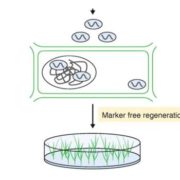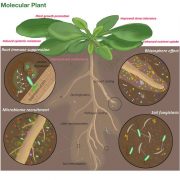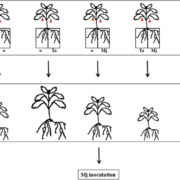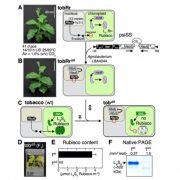Crop variety management for climate adaptation supported by citizen science (PNAS)
 Current research is focused on developing better crop varieties that could withstand the adversities posed by climate change; however, these varieties might perform worse than the locally-grown varieties in field conditions. This could be due to the release of varieties to farmers without performing geographic analysis and without considering the local climatic as well as production conditions. To address this, van Etten et al. have involved the farmers as ‘citizen scientists’ to evaluate the relative performance of new varieties that were randomly assigned to them. The authors have organized tricot (triadic comparisons of technologies) trials covering 842 plots of common bean in Nicaragua (five cropping seasons), 1090 plots of durum wheat in Ethiopia (three seasons), and 10477 plots of bread wheat in India (four seasons) between 2012 and 2016. Modeling the environmental influence (agroclimatic and soil data) on variety performance has pinpointed the varieties that are better adapted to local climates. The study has highlighted the possibilities to provide geographically specific recommendations to improve crop adaptation and reduce the risk of farmers facing the adverse effects of climate change. (Summary by Muthamilarasan Mehanathan) PNAS 10.1073/pnas.1813720116
Current research is focused on developing better crop varieties that could withstand the adversities posed by climate change; however, these varieties might perform worse than the locally-grown varieties in field conditions. This could be due to the release of varieties to farmers without performing geographic analysis and without considering the local climatic as well as production conditions. To address this, van Etten et al. have involved the farmers as ‘citizen scientists’ to evaluate the relative performance of new varieties that were randomly assigned to them. The authors have organized tricot (triadic comparisons of technologies) trials covering 842 plots of common bean in Nicaragua (five cropping seasons), 1090 plots of durum wheat in Ethiopia (three seasons), and 10477 plots of bread wheat in India (four seasons) between 2012 and 2016. Modeling the environmental influence (agroclimatic and soil data) on variety performance has pinpointed the varieties that are better adapted to local climates. The study has highlighted the possibilities to provide geographically specific recommendations to improve crop adaptation and reduce the risk of farmers facing the adverse effects of climate change. (Summary by Muthamilarasan Mehanathan) PNAS 10.1073/pnas.1813720116









